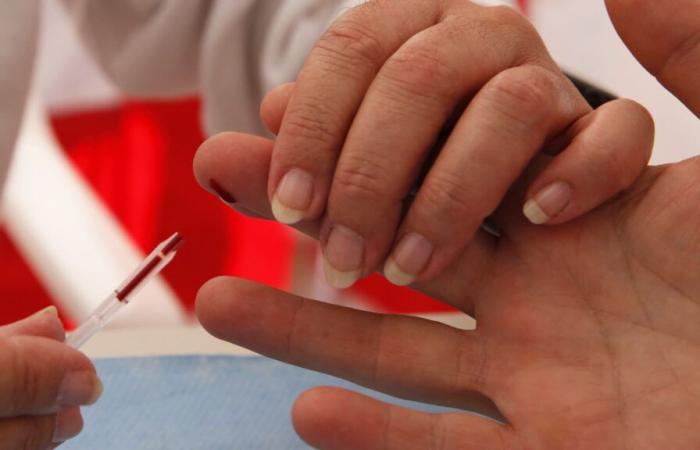An article published this Tuesday, November 26 by Public Health France provides data on the development of AIDS, the most advanced stage of HIV, in people who are aware of their HIV status. They did not have recourse to the treatment which nevertheless allowed them to live an almost normal life.
In the minds of the general public, the difference is not always clear. The human immunodeficiency virus (HIV) is an infection that can be transmitted particularly during sexual intercourse. Acquired immunodeficiency syndrome (AIDS), sometimes wrongly used as a synonym, is the most advanced stage of the disease which results from infection with the virus.
Thus, it is possible to be seropositive, infected with HIV, but without developing AIDS. However, a significant number of HIV-positive people are not treated and develop AIDS, as highlighted this Tuesday, November 26 in an article published by Public Health France.
In this article, epidemiologist Françoise Cazein notes that, “despite considerable progress” in the treatment of patients, “AIDS, the most advanced stage of infection, is still diagnosed in France in several hundred people per year”.
A study carried out on the basis of declarative data collected from 2012 to 2023, a period during which we were able to observe 800 to 900 cases of AIDS per year on average, 11,300 estimated over the entire interval.
18% know they are infected but have no treatment
However, although we still cannot cure HIV (apart from extremely rare exceptions), treatments allow HIV-positive people to live a normal life, thanks to antiretroviral treatment. As Vidal explains, these are “substances which have been designed to block different stages of the multiplication of HIV”.
These treatments help you stay healthy and prevent transmission to a partner during sexual intercourse. But a part of the population escapes, refuses, or ignores this treatment.
“The vast majority (80%) of AIDS diagnoses concerned people who had not received (treatment) before AIDS,” we can read in the bulletin from the health authorities. In 18% of cases, people knew they were infected with HIV.
The article is more of an inventory than an in-depth explanation of the mechanisms at work. “The data collected by the (declaration), necessarily succinct, does not allow us to know the reasons for the absence of treatment for these people,” indicate the French researchers.
Where does medicine really stand in the face of AIDS?
However, certain leads remain put forward, among these, the profiles of patients. These include, for example, people born abroad who arrived in France without access to appropriate care between their diagnosis and the development of AIDS, which takes an average of eight years.
“Any contact with the healthcare system, even at a distance from migration, could be an opportunity to offer or repeat an HIV test, in order to be able to bring these people to healthcare,” argue the authors.






